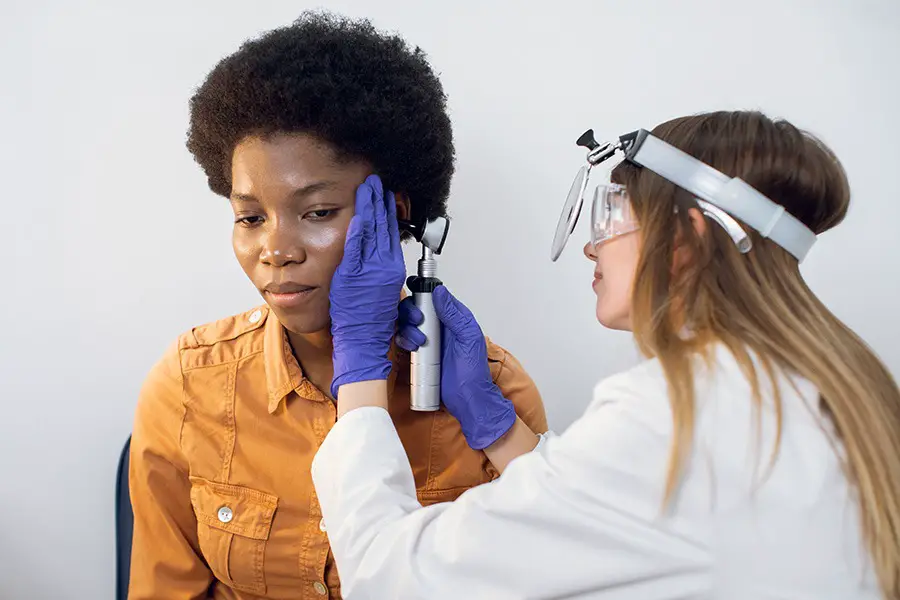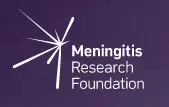Introduction
Experiencing meningitis and hearing loss can be a transformative and difficult event for both the person involved and their supporting network. As someone close to them, it’s essential to understand the link between meningitis and hearing loss, identify the symptoms, and be aware of potential treatments and support mechanisms. This exhaustive guide explores numerous aspects of meningitis and hearing loss, offering valuable advice on becoming a dependable support system for your loved one.
The Implications of Meningitis on Auditory Health: Essential Information
Meningitis, a condition characterized by the inflammation of protective membranes encompassing the brain and spinal cord, is frequently induced by bacterial, viral, or fungal infections. Hearing impairment is a typical aftermath of meningitis, with an estimated 30% of survivors facing some level of hearing loss. Meningitis-related hearing loss is a consequence of infection-induced damage to the delicate inner ear structures that convey sound to the brain. It’s essential to identify signs of post-meningitis hearing loss, including struggles with hearing or interpreting speech, tinnitus, or balance issues, to initiate timely intervention and mitigate lasting effects.
Meningitis and Hearing Impairment: The Importance of Prompt Detection and Intervention
Prompt detection of auditory impairment in meningitis survivors is paramount for timely intervention, leading to significantly better outcomes. Routine hearing assessments should be performed following meningitis to track any fluctuations in auditory capability. If hearing impairment is detected, further assessment and treatment by an audiologist or an otolaryngologist are necessary. Treatment options, dependent on the type and severity of hearing loss, could encompass hearing aids, cochlear implants, or other supportive listening devices. Prompt intervention also necessitates speech and language therapy, as well as educational support for children suffering from meningitis-induced hearing loss.
QUIZ - CURRENT RESEARCH ON HEARING LOSS
Interdisciplinary Cooperation in Managing Meningitis and Hearing Loss: Research Collaboration
The importance of cooperation among various healthcare professionals for efficient management of meningitis and hearing loss cannot be understated. A multidisciplinary approach ensures all facets of the patient’s requirements are met, including medical treatment, auditory rehabilitation, speech therapy, and psychological assistance. Moreover, joint research initiatives between scientists, audiologists, and physicians can lead to novel insights into understanding, prevention, and treatment of meningitis and hearing loss. As a supporting friend or family member, keeping abreast of the latest research and advancements is paramount.
The Promise of Gene Therapy in Managing Meningitis-Related Hearing Loss
Gene therapy, an innovative field, holds the potential to dramatically alter the treatment landscape of various diseases, including meningitis-induced hearing loss. This method involves injecting genetic material into cells to amend or replace defective genes, facilitating the recovery of normal cellular function. In the context of hearing loss, gene therapy aims to protect or regenerate damaged auditory cells, thereby enhancing or restoring auditory ability. Although still in its nascent stage, gene therapy shows promise for future treatment of meningitis-related hearing loss and may emerge as a viable alternative for those affected by this condition.
Professional Re-Chargeable Hearing Aid
Experience Exceptional Sound Quality with Vivtone RIC02, a professional RIC hearing aid featuring a receiver in the canal design. Enjoy superior sound fidelity, reduced distortion, and minimal feedback. With a remarkable 51dB peak sound gain, it surpasses many other devices, catering to a wide range of hearing loss levels.
State-of-the-Art Technology awaits you with Vivtone RIC02. Designed with US-made components from renowned brands like Intricon and Knowles, this advanced device offers exceptional quality at a fraction of the cost. The built-in 30mAh steel-sealed lithium polymer battery charges rapidly in just 1.5 hours and provides an impressive battery life of over 20 hours.
Reliability and Water Resistance come hand in hand with the Vivtone RIC02. Secure your device with the included lanyard and clip, preventing accidental loss. With an IP65 rating, these hearing aids are resistant to water, sweat, and raindrops, assuring longevity and durability. Give the perfect gift to your seniors and loved ones, as this device combines functionality with an appealing appearance and packaging.
The Emotional and Social Consequences of Meningitis-Associated Hearing Loss
Meningitis-associated hearing loss can considerably impact the emotional and social life of the person involved and their loved ones. It’s common for the affected person to encounter feelings of frustration, isolation, and depression as they acclimate to their new circumstances. As a supportive friend or family member, it’s vital to recognize these emotions and create a secure environment for your loved one to express their feelings. Encourage them to seek professional help if required and consider joining a support group for individuals and families dealing with meningitis and hearing loss. By facilitating open communication and offering emotional support, you can assist your loved one in navigating the challenges of meningitis-related hearing loss, aiming towards an improved quality of life.
Meningitis and Hearing Loss: Aiding Loved Ones on Their Recovery Journey
Supporting a loved one through their recovery journey post-meningitis and hearing loss requires empathy, patience, and understanding. Motivate your loved one to pursue appropriate medical attention and adhere to their healthcare provider’s recommendations. Assist them in adapting to hearing aids or cochlear implants, and demonstrate patience as they learn to effectively use these devices. Accompany your loved one to medical appointments and therapy sessions, providing emotional support and helping them navigate recovery challenges. By actively engaging in your loved one’s journey towards better hearing, you can significantly contribute to their overall wellness and success.
Conclusion
Meningitis and hearing loss can profoundly change lives, but with the right support, information, and resources, affected individuals can continue leading meaningful lives. As a supportive friend or family member, it’s crucial to comprehend the various facets of meningitis and hearing loss, including prompt detection, available treatments, and the emotional and social impact. By staying informed and providing practical and emotional support, you can assist your loved one in navigating the complexities of meningitis-associated hearing loss and aim towards an improved quality of life.

Decoding Silence: An Analytical View on the Advances in Conductive Hearing Loss Research and Treatment
This analytical article sheds light on conductive hearing loss, offering an in-depth exploration of its genetic factors, treatment advances, and promising experimental therapies.

Embracing the Melody of Life: Navigating the Journey with Conductive Hearing Loss
A blog post delving into the experiences and challenges of living with conductive hearing loss, discussing its impact on everyday life, social interactions, mental health, and the potential benefits of hearing aids and cochlear implants.





